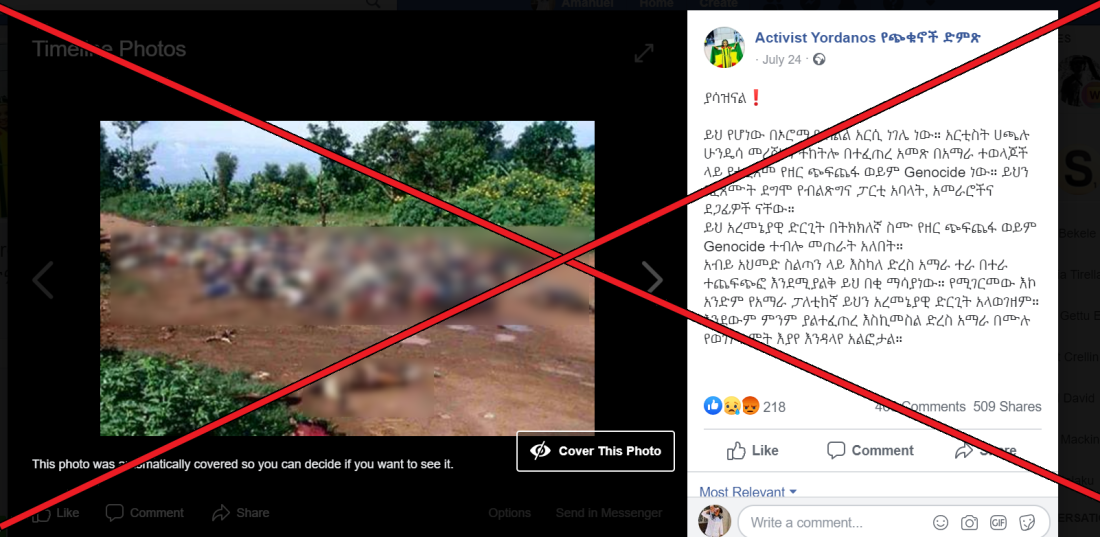
No, this photo is from the 1994 Rwandan genocide
- This article is more than five years old.
- Published on August 18, 2020 at 16:51
- 2 min read
- By Amanuel NEGUEDE, AFP Ethiopia
The post, published on July 24, 2020, and archived here, claimed to show the aftermath of recent protests in Ethiopia, which erupted after the death of singer and Oromo activist Hachalu Hundessa.
Featuring a photograph of dead bodies piled up on a dirt path, the post was shared more than 500 times before it was removed. The Facebook page behind it was also deactivated, however, a screenshot of the original was shared here.

“How sad! This happened in the Oromia district in the city of Arsi,” the post reads in Amharic.
However, this claim is false. AFP Fact Check ran a reverse image search using Yandex and found the original image in the archives of photo agency Getty Images.
The photo was taken on April 21, 1994, by photojournalist Patrick Robert. The caption explains that it was captured at Nyanza Hill in Rwanda and shows 150 Tutsis massacred by the army during the civil war.
Content warning

On April 6, 1994, a plane carrying the presidents of Rwanda and Burundi was shot down, sparking 100 days of violence in Rwanda. Between 800,000 and one million people were massacred by Hutu extremists.
Last month, France opened a probe into alleged crimes against humanity by former Rwandan military official, Aloys Ntiwiragabo, who was found hiding in Orleans, some 100 kilometres from Paris.
Violence in Ethiopia
Following the murder of singer and Oromo activist Hundessa on June 29, 2020, between 179 and 239 people -- officials have provided conflicting tallies -- were killed because of inter-ethnic violence or the use of lethal force by police and soldiers against demonstrators.
As a result of the unrest, the Ethiopian army was deployed in the capital Addis Ababa and the internet was shut down for 23 days across the country, according to NetBlocks, a civil society group that monitors digital rights.
Welcome back #Ethiopia! Real-time network data show much of the country and cellular network now back online ?
— NetBlocks.org (@netblocks) July 23, 2020
We've clocked the internet shutdown at 23 whole days (552 hours) of nation-scale impact and monitoring continues ⏱
However…
?https://t.co/y5ATw7JHAh pic.twitter.com/mb8kSWfaQP
Copyright © AFP 2017-2026. Any commercial use of this content requires a subscription. Click here to find out more.
Is there content that you would like AFP to fact-check? Get in touch.
Contact us
